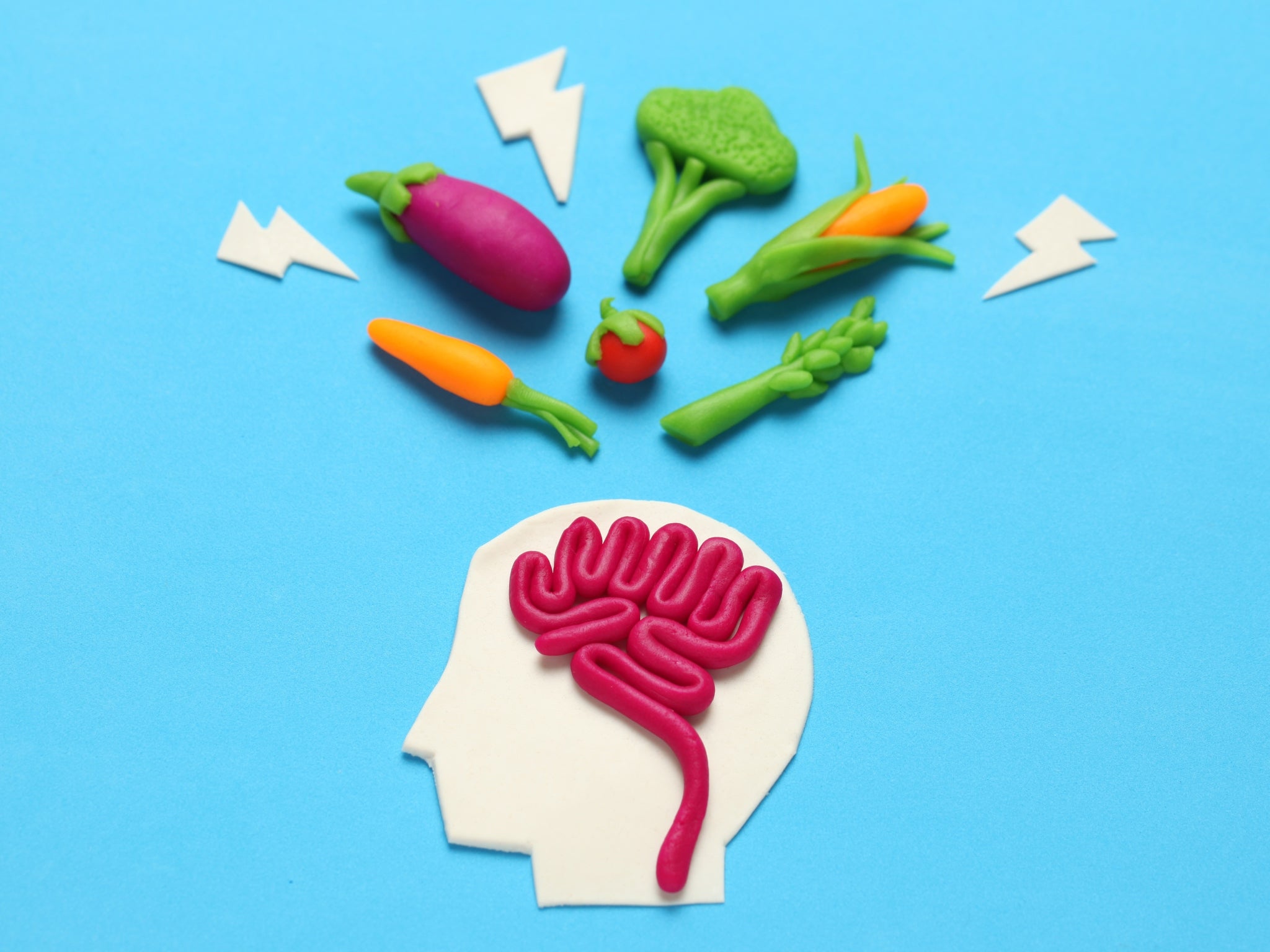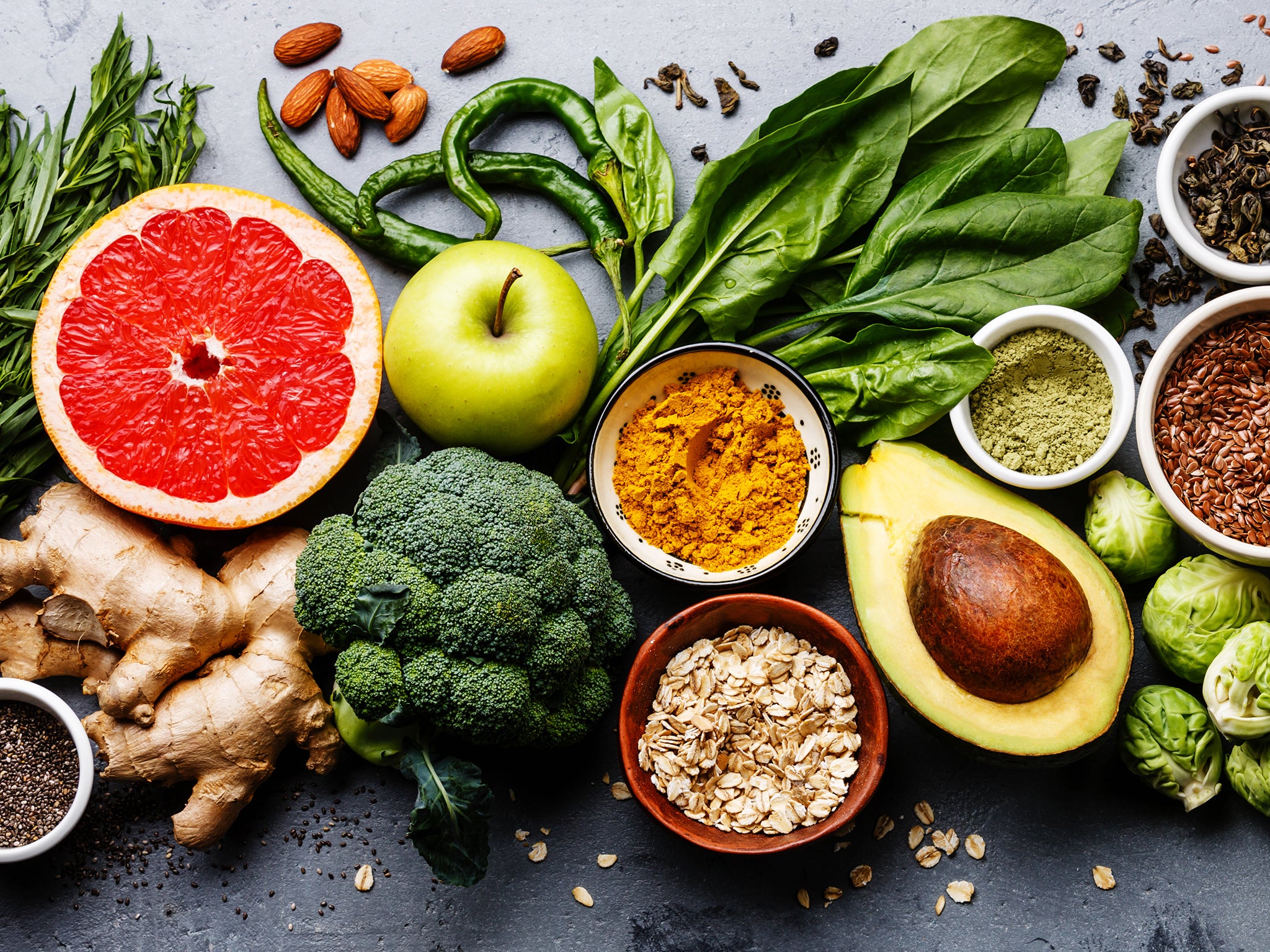What is ‘cognition nutrition’? It could change the way you eat forever
Could dinner by 6pm and a diet of omega-3 and sunflower seeds be the key to better brain health? Hannah Fearn taps into the movement


Your support helps us to tell the story
This election is still a dead heat, according to most polls. In a fight with such wafer-thin margins, we need reporters on the ground talking to the people Trump and Harris are courting. Your support allows us to keep sending journalists to the story.
The Independent is trusted by 27 million Americans from across the entire political spectrum every month. Unlike many other quality news outlets, we choose not to lock you out of our reporting and analysis with paywalls. But quality journalism must still be paid for.
Help us keep bring these critical stories to light. Your support makes all the difference.
When Farren Morgan signed up to life in the military he was on the cusp of his thirties. Surrounded by other new recruits to the army, he realised he needed to overhaul his diet to remain at his physical peak. Not only did he want to build the strongest body he possibly could, but he knew he’d need to keep mentally sharp too. He started researching the best foods to eat to protect the brain and help it reach optimum functioning – the so-called “cognition nutrition” diet.
Increasingly popular among men, cognition nutrition is touted by dietitians as a food trend set to dominate the next decade. As we are living longer, protecting the brain is becoming just as important as finessing the body, and what we eat matters.
The diet, loosely based on a low carbohydrate version of the Mediterranean plate, introduces particular foods and ingredients to boost mental function and alertness. Some nutritionists it could even help prevent neurodegenerative illnesses such as dementia and Parkinson’s disease.
Morgan, an army section commander, eats six small meals a day based on proteins high in amino acids, such as chicken or fish, to reduce fatigue. He loads up on green vegetables which have a positive effect on cognitive function and also prevent muscle tears in his very physical job. He also includes walnuts, salmon and sardines – all of which contain brain-boosting nutrients.
“I tend to incorporate walnuts into the salads and cereal that I eat, and switch between cooking the fish separately to serve on the side of my meals or I add them into my sauces,” he explains. “By transforming my diet and being conscious of the food I ingest, my mind and body have thoroughly sharpened to help me knock out daily tasks and reach the goals that I’ve set for myself.”
Now aged 36, Morgan, who also runs a tactical training coaching business, says shifting to the diet has had a “major impact” on his life. “I’ve found that it’s contributed to my positive mindset and mental health, enhanced my focus and ability to concentrate, and improved my athletic performance during my daily workouts, marathon runs, and military drills,” he claims. “And because of my diet, the quality of my sleep has improved significantly. I’m able to sleep for a full seven hours.”
The difference is mental clarity. I’m healthier, fitter, happier at 40 than I was at 20 and I definitely believe part of that was addressing my diet
In a report on future diet trends, meal-kit company Green Chef identified cognition nutrition as one of the five methods of eating it expects to become most popular in the next decade. The study highlights research showing that 37 per cent of consumers now consider food not just an energy source but a “functional tool” to reach their mental goals. The study quotes foresight analyst Savannah Scott, of The Future Laboratory, who claims we are entering a “new phase for functional foods, with the pandemic driving demand for products that support mental health and resilience”.
But what does that mean for the foods we choose to put on our plates? According to nutritionist Penny Weston the starting point for increasing your brain power through diet is limiting foods that spike insulin levels, which can cause inflammation throughout the body including in the brain. “Many studies have shown that a poor diet, including those high in sugar, can lead to poor mental health. The food you eat can affect your mood, memory and behaviour,” she says. “It can make us feel wired, irritable and tired. Ready meals and processed foods, such as baked beans, sauces and pizzas, are all high in sugar and salt and can have a negative effect on the brain.” She also warns against fizzy drinks and alcohol.
So what should we be including? Weston names a number of foods specifically beneficial to cognitive functioning: blueberries, broccoli, kale, spinach and rocket all improve brain health, improve memory and focus, while fatty fish provides omega-3 fatty acids which the brain uses to build nerve cells.
“It’s also great to add in lots of pumpkin and sunflower seeds to your diet, as these are full of minerals such as magnesium, zinc, iron and copper, which help with nerve signalling. Sunflower seeds are very high in B1, which is important for memory and cognition,” she adds. As for spices, turmeric is a key note for the cognition nutrition diet; research has shown it can reduce depression and even symptoms of Alzheimer’s disease.
Pauline Cox, a nutritionist who trains GPs and other NHS medics in the power of food to heal and improve the body, is another expert who has observed the trend for eating for mental clarity gaining in popularity – particularly among men. She says: “I personally think it has come from Silicon Valley. It’s a trend that started over in America as guys working long hours saw the power of increasing their brain capacity. They realised by manipulating their diet and increasing healthy fats maybe they could do five hours’ work in two hours. They structured it almost like a business plan.”

For many, though, taking this approach requires a complete overhaul of their Western diet and its obsession with carbohydrates. “The standard American diet has the opposite effect, it dampens our focus and causes brain fog. It makes us feel cognitively poor, particularly in the afternoons,” Cox, the author of Primal Living in a Modern World, explains. Her recommendation is again for a Mediterranean diet – “lots of oily fish and salads, brightly coloured veg, berries and other low carb fruits, avocado, and lots of olive oil” – but topped up with supplements.
Cox tells her clients to look specifically to sources of omega-3 fats other than oily fish, such as hemp, linseed and ahiflower oils. Other hacks for “cognition nutrition” include introducing medicinal mushrooms, particularly lion’s mane mushroom, and other more unusual supplements such as ashwagandha and rhodiola, both traditional herbs.
She also recommends time-restricted eating, finishing the last meal of the day at 6pm so the body has long enough to fast and allow it to go into ketosis, burning fat instead of sugars and producing a byproduct in the blood known as ketones. “The brain loves ketones,” she says. “It’s designed for us to burn the fat in our body. As hunter gatherers this metabolic flexibility was very important to us. Ketones pass easily into the brain. Having baseline levels of ketones is indicative of fat burning and those ketones are really beneficial for neurodegenerative conditions like Alzheimer’s.”
If your diary is loaded with late business dinners making a 6pm cut-off impossible, another supplement – MCT oil – may offer a shortcut. It provides a form of fat that is broken down very rapidly by the liver into ketones, giving your brain an instant source of fuel. Cox tells her clients to add it to a morning coffee or smoothie.
Another convert to this way of eating is 40-year-old Dave Thomas. A gym manager for The Foundry, Thomas overhauled his diet and started taking MCT in an attempt to improve the side effects of a brain injury sustained playing rugby when he was 16, after which he began suffering depressive episodes. He continued to play sport, but found the injuries he sustained had ongoing effects: he experienced outbursts of anger, a lack of concentration and episodes of disinhibition. “I had real problems filtering, my thoughts and things would just blurt out. And again, you know, I was generally a very tactful person prior to this,” he says.
Thomas finally saw a neurologist after the Covid pandemic, and began making changes to his diet to see if it made a difference – and it did. He followed a ketogenic diet, increasing ketones in the brain. “I have a lot of avocado, a lot of olive oil, lots of nuts. I don’t worry about having butter and stuff with things but I am trying to avoid processed meats. I do take an MCT oil, which is derived from coconut. I have a couple of teaspoons of that a day [and] within half an hour I get these, like, little energy boosts,” he says.
He describes the difference in his cognition as palpable: “The difference is mental clarity. I’m healthier, fitter, happier at 40 than I was at 20 and I definitely believe part of that was addressing my diet.”
If all this sounds like incredible hard work, there are some quicker ways to boost your cognitive abilities when you need them most. Dr Josephine Perry, a psychologist specialising in high performance, always tells her clients to have a small portion of glucose or caffeine – or both – before they have an important event such as a speech or job interview. Even if your overall diet hasn’t been perfect, the sugar hit will give your rational brain the upper hand in a stressful situation – but if it’s starved of glucose, it could let you down. “If you under-fuel your brain, you stop performing,” Perry says. Caffeine, meanwhile, reduces the perception of effort. Pour yourself another coffee and you really can work that little bit harder without even noticing.
Join our commenting forum
Join thought-provoking conversations, follow other Independent readers and see their replies
Comments